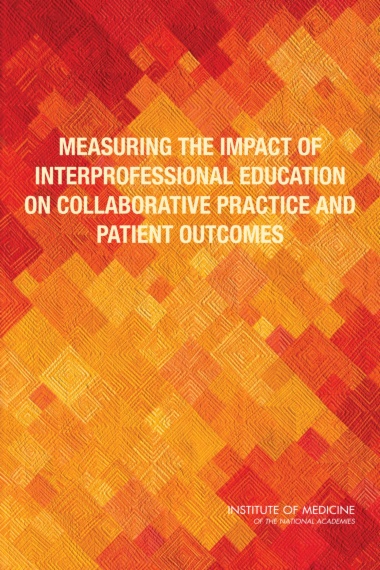

Interprofessional teamwork and collaborative practice are emerging as key elements of efficient and productive work in promoting health and treating patients. The vision for these collaborations is one where different health and/or social professionals share a team identity and work closely together to solve problems and improve delivery of care. Although the value of interprofessional education (IPE) has been embraced around the world - particularly for its impact on learning - many in leadership positions have questioned how IPE affects patent, population, and health system outcomes. This question cannot be fully answered without well-designed studies, and these studies cannot be conducted without an understanding of the methods and measurements needed to conduct such an analysis.
This Institute of Medicine report examines ways to measure the impacts of IPE on collaborative practice and health and system outcomes. According to this report, it is possible to link the learning process with downstream person or population directed outcomes through thoughtful, well-designed studies of the association between IPE and collaborative behavior. Measuring the Impact of Interprofessional Education on Collaborative Practice and Patient Outcomes describes the research needed to strengthen the evidence base for IPE outcomes. Additionally, this report presents a conceptual model for evaluating IPE that could be adapted to particular settings in which it is applied. Measuring the Impact of Interprofessional Education on Collaborative Practice and Patient Outcomes addresses the current lack of broadly applicable measures of collaborative behavior and makes recommendations for resource commitments from interprofessional stakeholders, funders, and policy makers to advance the study of IPE.